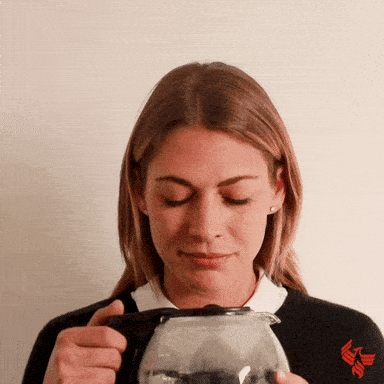- The Daily Tonic
- Posts
- Quitting coffee? Never.
Quitting coffee? Never.
Plus: Stop the late-night snacking!
DEEP DIVE
Quit Coffee? Never!
How much do you rely on caffeine to start your day? Everyone loves coffee, and what’s there not to love? The smell, the taste, the energy—I mean, come on. I, personally, don’t go a day without it.
However, some of us often overlook the impact of this seemingly harmless habit. This story, featured in Esquire (READ THE WHOLE STORY HERE), starts with Petty Officer Second Class Marcus Bivens, whose life took an unexpected turn due to his caffeine consumption.
Bivens, a once exemplary sailor in the U.S. Navy, found his life unraveling due to health issues that initially baffled doctors. His symptoms ranged from double vision to physical weakness, leading to extensive medical tests that turned up no clear diagnosis. Eventually, doctors made the realization that Bivens's condition was linked to his excessive caffeine intake, a habit that had silently been undermining his health.
Yikes.
Caffeine, the world's most widely consumed psychoactive substance, is often seen as a harmless component of our daily lives. Yet, Bivens's story highlights the lesser-known, potentially harmful effects of this common stimulant.
For years, he consumed about 1,000 milligrams of caffeine daily, more than two and a half times the recommended limit. That’s the equivalent of ten cups of coffee, which seems like a lot but is not unrealistic if you have a large coffee in the morning, one or two large coffees in the afternoon, and an energy drink later in the day. This excessive intake began to take a toll on his central nervous system, leading to a range of physical and psychological issues.
And the scary part? Bivens's journey is not necessarily unique. Many people rely on caffeine to power through their day, often consuming it in various forms like coffee, energy drinks, or sodas. This habit is deeply embedded in our culture, with coffee breaks and energy drinks being the norm in workplaces and social settings. However, the potential dangers of caffeine dependence and overdose are often overlooked since it is so widespread.
The impact of caffeine on our bodies is significant. It can overstimulate the nervous system, leading to symptoms like anxiety, disrupted sleep, irritability, and even more severe health issues if you let things get out of hand. The difference in how individuals metabolize caffeine can also lead to varied effects, making some more susceptible to these negative impacts.
Despite these risks, the idea of reducing or eliminating caffeine from our diets is always met with resistance. How could you possibly even suggest cutting out coffee!? It’s ludicrous even to consider it. Why? Well, because the social and cultural significance of caffeine consumption, coupled with its perceived benefits, often overshadows the need for moderation or caution.
The key takeaway? The Bivens story (READ HERE) is a cautionary tale about the hidden dangers of caffeine. Is caffeine safe? Yes, but only in moderation. If coffee is a part of your morning routine that you look forward to, great! But if you find yourself NEEDING caffeine throughout the day, cutting back and moderation might be something you want to consider. If your caffeine addiction gets too out of control, it can be a really tough habit to break.
